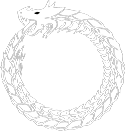“The true soldier fights not because he hates what is in front of him, but because he loves what is behind him.”
— G.K. Chesterton
One of my friends and students is a Sergeant Major in a Tier One unit that among other things conducts deep cover counter-terror operations. Some of their exploits are thinly disguised in the excellent Netflix series FAUDA, which is produced, directed, written and acted by veterans of that same unit.
I recently asked what were the most desirable attributes he looked for during unit selection. I was interested in the breakdown of the physical, psychological, cognitive, and perceptual attributes the Chinese and French “Super Soldier” programs are focusing on. HERE
I expected the usual: mental and physical toughness, team player but able to work alone and so on…
This is what he told me:
1. That the operator loves my friend as much as he loves them.
2. Be better than my friend
3. That the operator knows that my friend is nothing without him — and that the operator is nothing without my friend.
Interesting, yes?
Let’s unpack those attributes for the wealth of information within them.
1. “That he loves me as much as I love them.”
The CK Chesterton quote at the top of this post is my friend’s favorite training quotation. Isn’t it interesting that love is a primary desirable attribute? That presupposes the ability to love, which leads to the ability to love others, and to recognize the love in others returned to them.
It’s an old triuism that the combat soldier fights for the soldier beside them. In an environment of hellish risk, where one may be working alone under extraordinary danger for long periods of time, the trust engendered by true love of one another might be the only thing sustaining an undercover operator in those dark hours when the terrifying solitude of their mission sinks in.
Being able to love others rules out sociopaths, narcissists, and psychopaths. It provides a gut check to the senior NCOs who run the selection courses and teams in the field.
“Could I love this one? Do I love this one? Do I love this one enough to die for him/her?”
That applies to both the selection officers and the trainees.
It’s a concept that breaks down the belief of super-operator as somehow inhuman. My research and experience now and in the past has shown me that the best operators in the long haul are MORE human in their emotional ability — managing their own and those of others — while navigating very tough passages. One friend characterized the best operators as “either meteors or moons.” Meteors blazed bright and fast and burnt out; moons were consistent, steady and shone light even in the darkest of times.
So perhaps a high level of emotional intelligence, starting with the motivation/ability to love someone other than one’s self and the mission might be a good attribute for the next generation of special operator?
2. Be better than me
It takes a strong sense of self to set ASIDE one’s ego and acknowledge someone in a “subordinate” role is better than you. And to encourage that operator to continue to grow and develop to be even better than they are right now? That requires a love similar to that of a good parent letting their children be who they are and encouraging them to grow in the direction of their gifts.
So the ability to set aside one’s ego, to recognize and nurture ability even though it might cast shade on you, and not only encourage it but require it, might that be a useful attribute?
This particular unit spends time looking for individuals with unique abilities, personalities and characteristics, to fit the right personality into a specific niche, rather than grinding out a uniform template to be forced into specific niches. Made to custom rather than adapted off the shelf.
3. That they know they’re nothing without me — and I’m nothing without them.
Another interesting insight, from the senior operator selecting his future team mates, as well as from a peer team member to his peers.
This requires again the ability to set aside ego, and acknowledge the foundation of team-building: the team is everything, and the team doesn’t function without all its individual components. This is especially pronounced in some missions this unit tackles, which require a singleton to work alone with minimal to no contact for very long periods under extraordinary stress — and to know that his/her team is out there, and that they are nothing without him doing his piece — and he’s nothing without their back-up and support.
When I parse out the above this is what I come up with:
- emotional intelligence
- ability to love others in a healthy fashion
- to receive love and care from others
- to give love and care to others
- strong ego
- able to set aside the strong ego when appropriate
- know one’s own strengths and weaknesses
- recognize other’s strengths and weaknesses
- support and nuture other’s abilities even if it makes one look “less”
- require peers and subordinates and leaders to bring out their unique abilities, capabilities, talents, skills to the greater good of the team/unit
- celebrate the different personalities one works with, or at least tolerate and appreciate the differences.
- acknowledge the importance of the group while (healthily) acknolwedging one’s individual importance to the group. Able to cultivate and internalize that sense of belonging at the visceral belief level.
What I find most interesting is how this belief system is founded first and foremost in profound love for each other — and for those behind them they protect.

